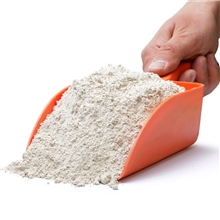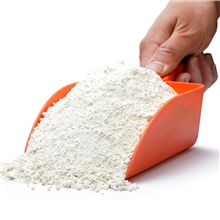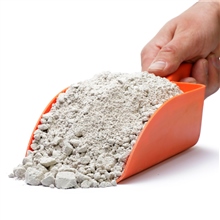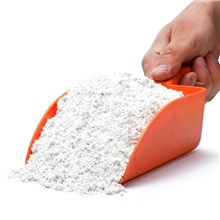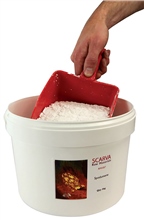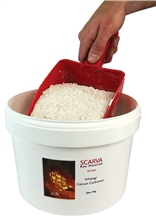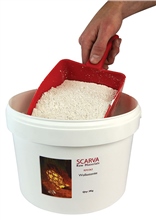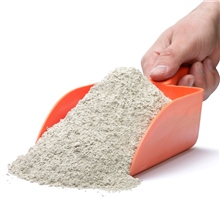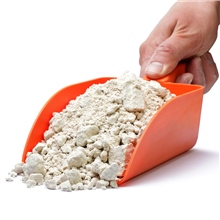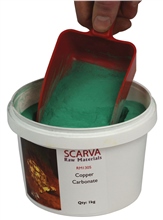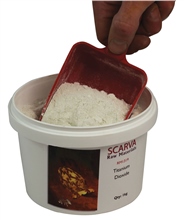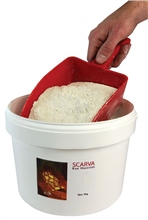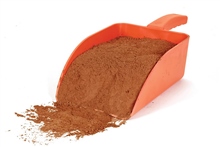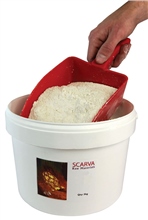
Lithium Carbonate is the best source of lithium oxide for glazes. It is slightly soluble. It is unusual to see more than 5% lithium carbonate in glaze. Because of the low expansion of Li2O, high lithium glazes tend to shiver.
There are certain basic properties of lithium which are ofinterest in ceramics. Since lithium has a very small ionic radius in comparison to the other alkali metals, it has a higher field strength. Low expansion coefficients are generally imparted to ceramic compositions containing lithia.Lithium carbonate is a very strong flux (also true of lithium fluoride). Incontrast, other lithium compounds may be quite refractory: lithium zirconate and lithium aluminum spinel are examples.
In addition to being soluble, lithium carbonate produces gases as it decomposes and these can cause pinholes or blisters in glazes.



